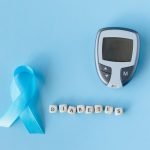Major Alzheimer’s risk factors harm men more than women
In a study from the University of Alberta, scientists found that important risk factors in Alzheimer's disease affect men and women very differently.
They used...
Scientists develop new sensor to detect Alzheimer’s early
In a study from SFU Nanodevice Fabrication Group, scientists developed a new biosensor that can be used to screen for Alzheimer's disease and other...
This diabetes drug can help protect against Alzheimer’s disease
In a study from Karolinska Institutet, scientists found mechanisms associated with a particular diabetes drug can also help to protect against Alzheimer's disease.
The findings...
Hormone therapy may prevent Alzheimer’s disease in older women
In a study from the University of East Anglia and elsewhere, scientists found that hormone Replacement Therapy (HRT) could help prevent Alzheimer's Dementia among...
1 in 2 older Americans with Alzheimer’s disease falls, study finds
With falls causing millions of injuries in older adults each year, it is an increasingly important public health concern.
In a study from Drexel University and elsewhere,...
Managing emotions better may prevent brain disease in older people
Negative emotions, anxiety, and depression are thought to promote the onset of neurodegenerative diseases and dementia.
But what is their impact on the brain and...
What the FDA’s accelerated approval of a new Alzheimer’s drug could mean for those...
The U.S. Food and Drug Administration approved the medication lecanemab, sold under the brand name Leqembi, on Jan. 6, 2023, through an “accelerated approval...
This healthy diet may slow down brain aging by 7 years, study finds
While cognitive abilities naturally diminish as part of the normal aging process, it may be possible to take a bite out of this expected...
New blood test can detect Alzheimer’s disease years before symptoms appear
Alzheimer's disease begins decades before the onset of any symptoms, such as memory loss.
Consequently, early diagnosis increases the chances of slowing the disease down...
Scientists find new way to accurate predict risks of cognitive decline, Alzheimer’s disease
The human brain holds many clues about a person's long-term health.
In fact, research shows that a person's brain age is a more useful and...










